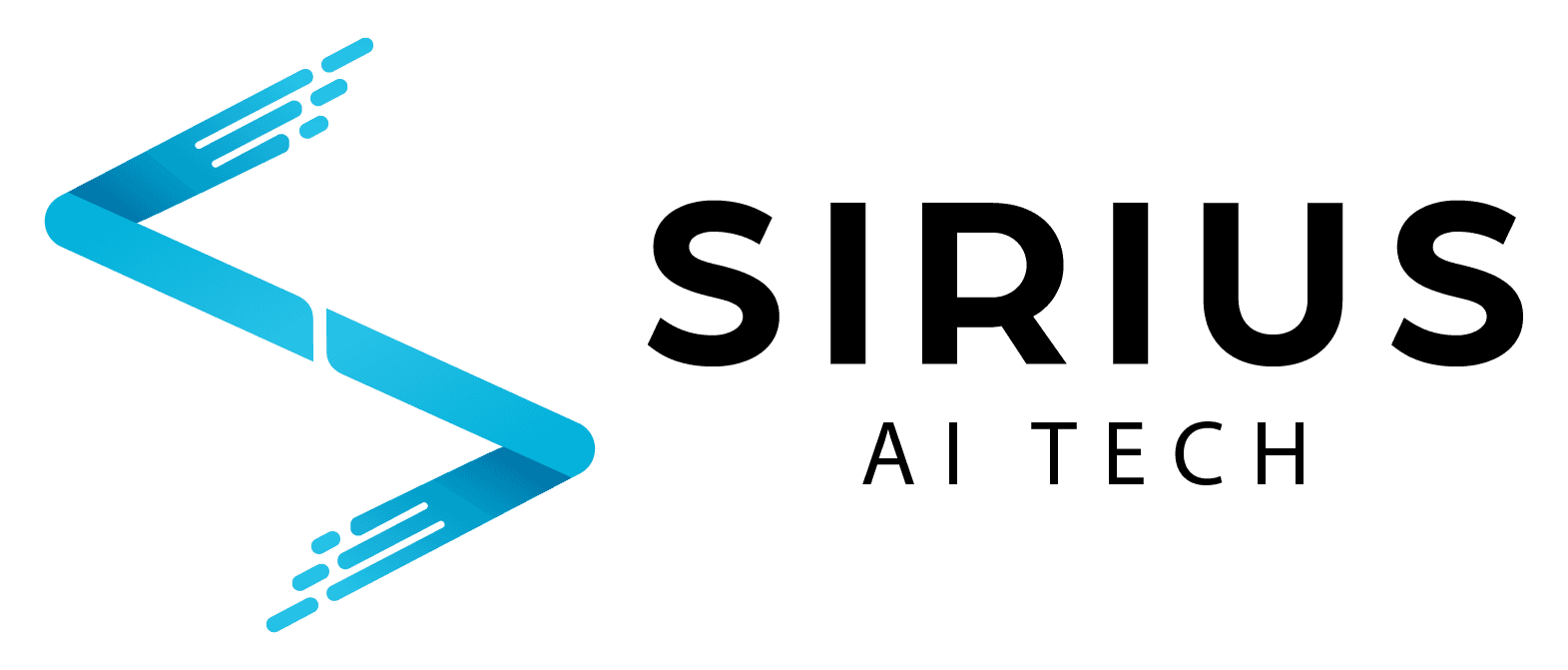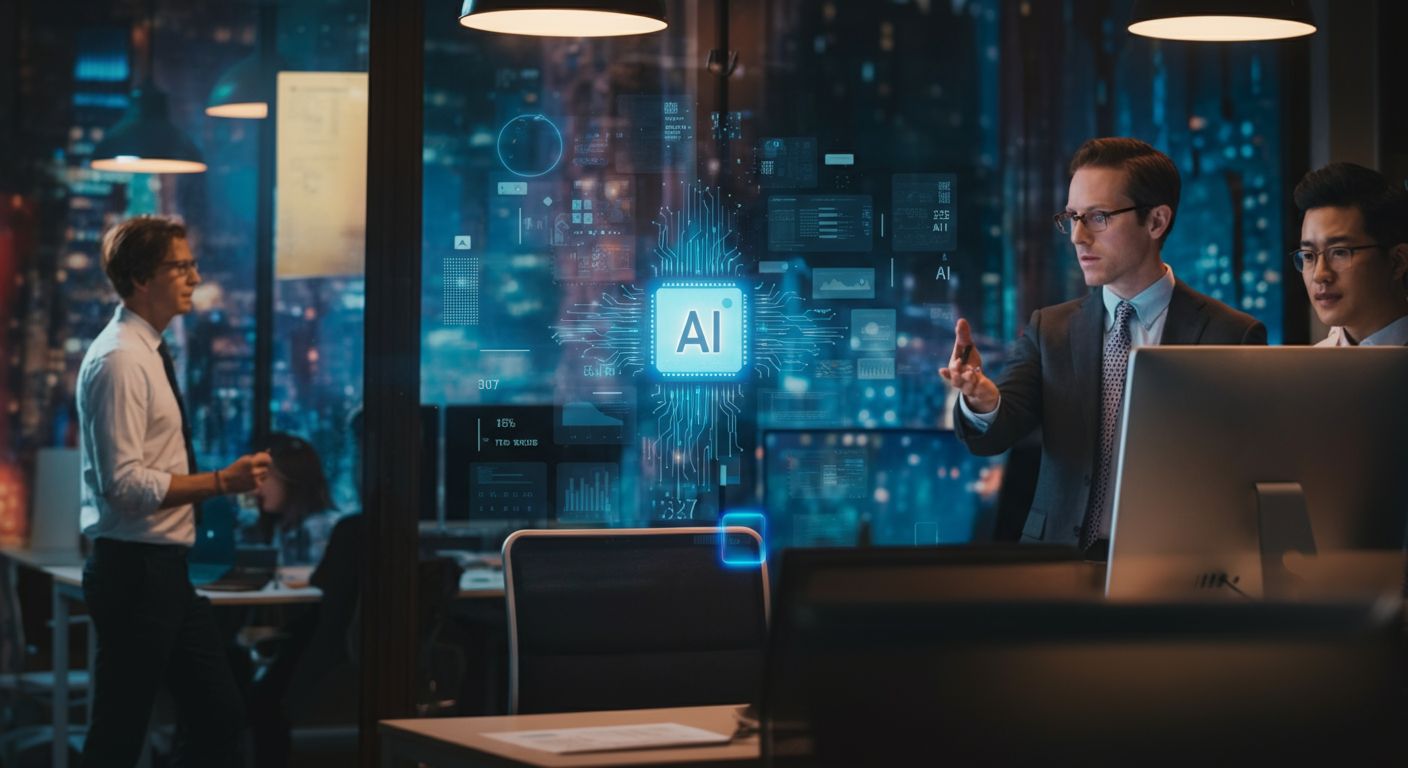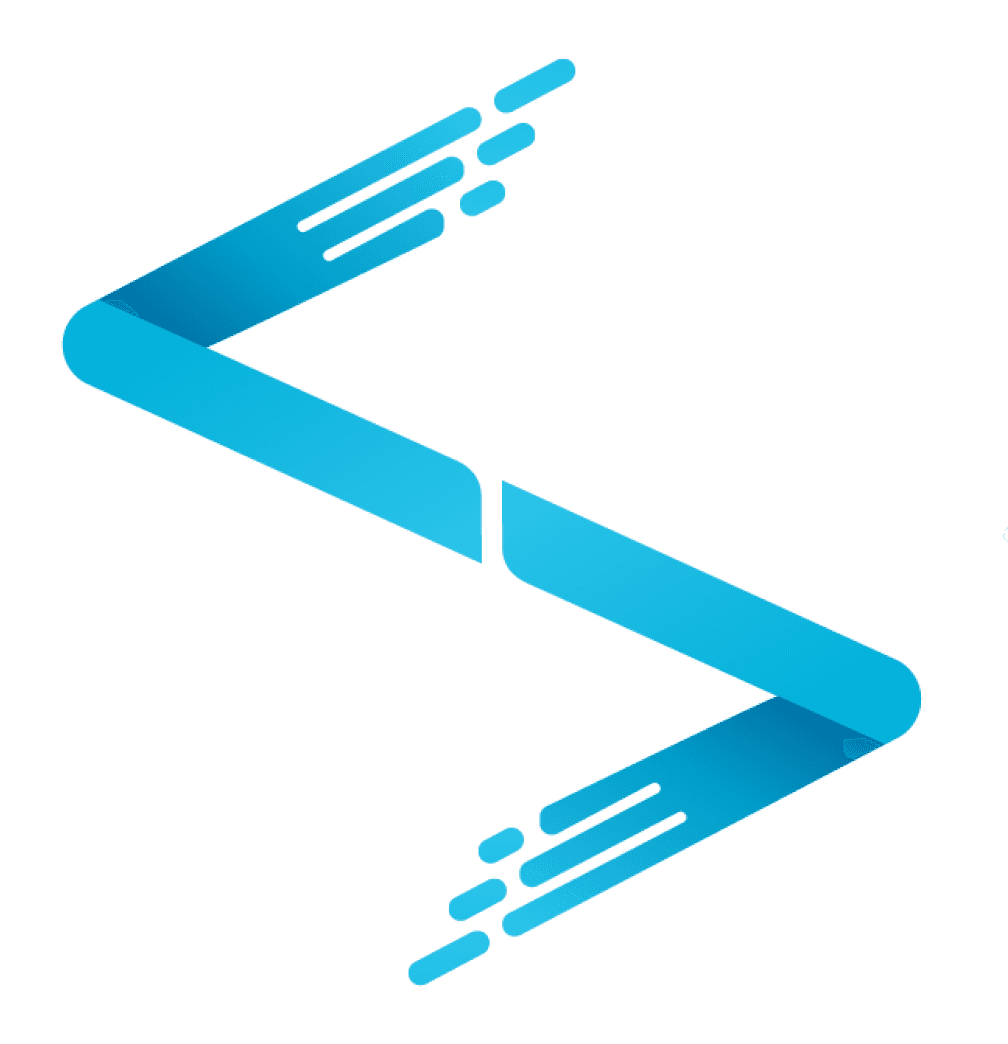Exploring the Synergy of AI and Human Collaboration
Discover how AI complements human skills in business, driving innovation and creativity. Explore the benefits of AI-human collaboration for a brighter future.
Blog >
Exploring the Synergy of AI and Human Collaboration
AI technology often stirs fears of job replacement, yet it serves to empower and extend human capability rather than supplant it. Through AI, workers across various sectors have witnessed enhanced productivity and innovation. This blog dives into how AI and humans can coalesce to forge bright new horizons for businesses globally.
How AI Enhances Human Capabilities in the Workplace
AI and Human Collaboration: A New Era of Synergy
AI's integration into the workplace is revolutionizing how tasks are approached, creating a seamless blend of AI and human collaboration. This synergy allows AI to handle repetitive tasks, while humans focus on creativity and strategic thinking. For instance, in the automotive industry, AI systems manage inventory and logistics, enabling engineers to innovate in vehicle design and safety features. In education, AI personalizes learning experiences, allowing teachers to concentrate on fostering critical thinking and creativity among students.
Key Benefits of AI-Human Collaboration
Enhanced productivity through AI's data processing capabilities, as seen in logistics optimization.
Improved decision-making with AI's real-time analytics, aiding strategic planning in retail.
Increased innovation by freeing human resources for creative problem-solving in tech development.
These benefits highlight the transformative potential of AI-human collaboration, fostering environments where both entities complement each other's strengths.
Steps to Implement AI-Human Collaboration
Identify tasks suitable for AI automation, such as data entry or scheduling.
Train employees to work alongside AI tools, enhancing their skill sets.
Continuously evaluate and adjust AI systems to align with evolving business goals.
By following these steps, businesses can effectively integrate AI into their operations, maximizing the benefits of AI-human collaboration.
Unveiling the Benefits of AI-Human Collaboration in Business
AI's Role in Enhancing Business Decision-Making
AI's integration into business processes significantly enhances decision-making capabilities. By analyzing vast datasets, AI provides precise insights that inform strategic decisions. For example, in the financial sector, AI algorithms predict market trends, allowing investors to make informed choices. In healthcare, AI analyzes patient data to recommend personalized treatment plans, improving patient outcomes. Additionally, AI's ability to process real-time data aids in supply chain management, optimizing inventory levels and reducing costs.
Advantages of AI-Human Collaboration in Business
Improved accuracy in data-driven decisions, as seen in AI's role in fraud detection.
Faster decision-making processes, exemplified by AI's use in real-time customer service.
Enhanced innovation through AI's support in research and development activities.
These advantages demonstrate how AI-human collaboration can transform business operations, leading to increased efficiency and innovation.
Implementing AI for Strategic Business Growth
Integrate AI tools into existing business processes to enhance efficiency.
Develop training programs to upskill employees in AI technologies.
Regularly assess AI's impact on business goals and adjust strategies accordingly.
By strategically implementing AI, businesses can harness its full potential, driving growth and fostering a culture of innovation.
he Future of Jobs: Will AI Replace Human Roles?
Transformative Impact of AI on Job Roles
The narrative around AI replacing jobs often overlooks the transformative potential it holds for creating new roles. As AI automates routine tasks, it opens opportunities for jobs focused on AI management and technology handling. For instance, roles like AI trainers and data analysts are emerging, requiring skills in technology management and strategic thinking. In the retail sector, AI-driven inventory systems allow employees to focus on enhancing customer experiences and strategic sales planning.
AI and Human Creativity: A Collaborative Future
AI's ability to handle data allows humans to focus on creative problem-solving.
Collaborative AI tools in design industries enhance human creativity by providing new insights.
AI-driven analytics in marketing enable innovative campaign strategies.
These examples illustrate how AI and human creativity can work together, fostering environments where innovative solutions thrive.
Adapting to AI-Driven Job Transformations
Identify emerging roles that require human oversight of AI systems.
Develop training programs to equip employees with skills in AI management.
Encourage a culture of continuous learning to adapt to technological advancements.
By following these steps, individuals and organizations can effectively navigate the evolving job landscape, ensuring a harmonious integration of AI and human capabilities.
AI's Influence on Human Creativity and Innovation
AI as a Catalyst for Creative Exploration
AI's role in creativity extends beyond mere assistance; it acts as a catalyst for exploration and innovation. By automating mundane tasks, AI allows humans to delve deeper into creative processes. For example, in the fashion industry, AI can generate design patterns, enabling designers to focus on conceptualizing unique styles. In music, AI tools assist composers by suggesting harmonies, freeing them to experiment with new sounds. Additionally, AI-driven platforms in film production streamline editing processes, allowing filmmakers to concentrate on storytelling and visual creativity.
Creative AI Applications Across Industries
AI in architecture aids in creating sustainable building designs through advanced simulations.
In literature, AI assists authors by suggesting plot developments and character arcs.
AI-driven art platforms enable artists to explore new mediums and techniques.
These applications highlight AI's potential to enhance human creativity, fostering environments where innovation thrives.
Steps to Foster AI-Human Creative Collaboration
Integrate AI tools that complement creative processes, such as design software or music composition aids.
Encourage cross-disciplinary collaboration to leverage AI's capabilities in diverse creative fields.
Continuously update AI systems to incorporate the latest creative trends and technologies.
By following these steps, industries can effectively harness AI's potential, driving creative innovation and expanding the boundaries of human ingenuity.
AI-Driven Synergy in Workplace Innovation
The integration of AI in the workplace has revolutionized task management, allowing for a seamless blend of human creativity and AI efficiency. By automating repetitive tasks, AI empowers employees to focus on strategic thinking and innovation, enhancing overall productivity.
This approach is exemplified in industries such as automotive and education, where AI systems manage logistics and personalize learning experiences, respectively. These advancements highlight the transformative potential of AI-human collaboration in fostering environments where both entities complement each other's strengths.
Strategic Business Growth through AI Collaboration
AI's role in business decision-making is pivotal, providing precise insights from vast datasets that inform strategic choices. In sectors like finance and healthcare, AI's predictive capabilities and data analysis enhance decision-making processes, leading to improved outcomes and efficiency.
The advantages of AI-human collaboration are evident in improved accuracy and faster decision-making, as seen in fraud detection and real-time customer service. These achievements underscore the potential of AI to transform business operations and drive innovation.
Adapting to AI-Driven Job Transformations
The evolving job landscape, influenced by AI, presents opportunities for new roles focused on AI management and technology handling. As AI automates routine tasks, it enables humans to engage in creative problem-solving and strategic planning, fostering a collaborative future.
By identifying emerging roles and developing training programs, organizations can ensure a harmonious integration of AI and human capabilities. This approach encourages continuous learning and adaptation to technological advancements, securing a future where AI and human creativity thrive together.
Frequently Asked Questions
How does AI enhance human capabilities in the workplace?
AI enhances human capabilities by automating repetitive tasks, allowing humans to focus on creativity and strategic thinking. This AI-human synergy boosts productivity and innovation, as seen in industries like automotive and education, where AI manages logistics and personalizes learning experiences.
What are the benefits of AI-human collaboration in business decision-making?
AI-human collaboration in business decision-making offers improved accuracy and faster processes. AI's ability to analyze vast datasets provides precise insights, aiding strategic choices in sectors like finance and healthcare, ultimately leading to enhanced productivity and innovative solutions.
Will AI replace human roles in the future?
While AI may automate routine tasks, it also creates new roles focused on AI management and technology handling. This transformation allows humans to engage in creative problem-solving and strategic planning, fostering a collaborative future where AI and human creativity thrive together.
How does AI influence human creativity and innovation?
AI acts as a catalyst for creative exploration by automating mundane tasks, enabling humans to delve deeper into creative processes. In industries like fashion and music, AI generates design patterns and suggests harmonies, allowing designers and composers to focus on unique styles and new sounds.
What steps can businesses take to implement AI-human collaboration effectively?
To implement AI-human collaboration effectively, businesses should identify tasks suitable for AI automation, train employees to work alongside AI tools, and continuously evaluate AI systems to align with evolving business goals. This approach maximizes the benefits of AI-enhanced productivity and innovation.
Related Blogs

The EU AI Act: A Barrier to Innovation or a Blueprint for Responsible AI?
Explore how the EU AI Act reshapes innovation, ethics, and compliance in AI—and how Sirius AI Tech helps businesses adapt responsibly.
Read

Small Business, Big Impact: How AI Agents Can Boost Your Competitive Edge
Discover how AI agents can boost your small business's efficiency, enhance customer service, and drive growth. Unlock your competitive edge today!
Read

Celebrating Pioneering Women in Artificial Intelligence: Inspiring Stories and Impactful Contributions
The inspiring journeys and groundbreaking contributions of pioneering women in artificial intelligence. Explore the importance of ethical AI, diversity, and inclusivity in technology.
Read
Topics
#
Sirius AI Tech
#
Seferi
#
Lobster Lead
#
CV US
#
Boss AI
#
Quantum
#
Calling AI
#
News
#
Resources





